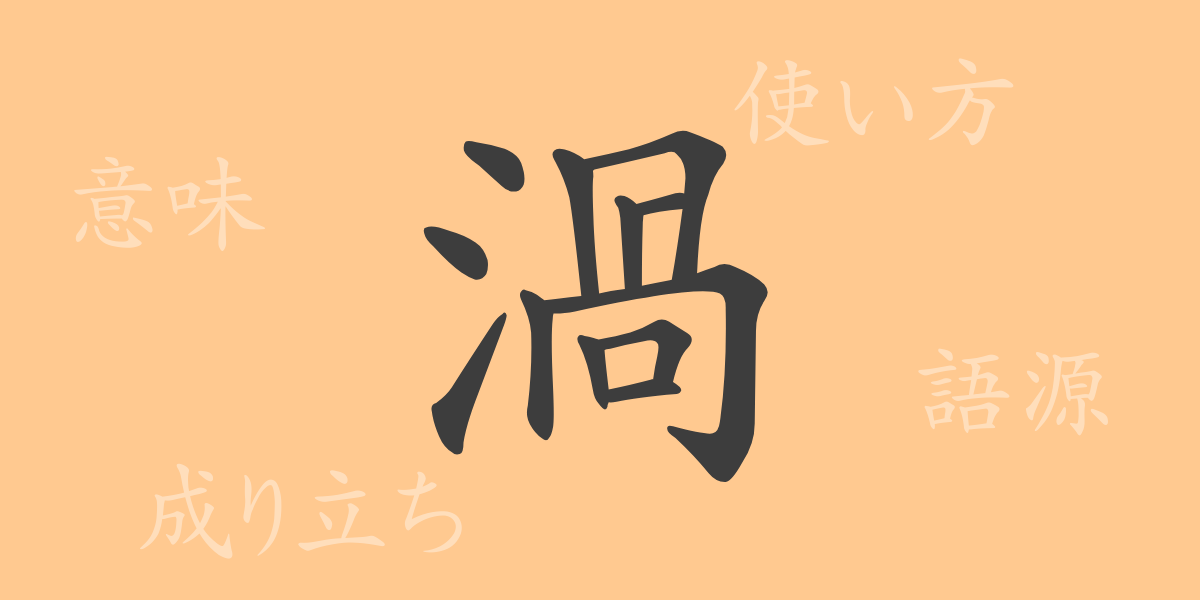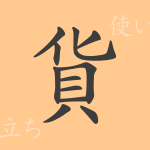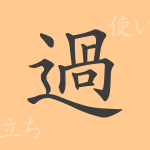From the mysteries of nature to everyday conversations, ‘whirlpools’ exist all around us. The Kanji character ‘渦’ (Uzu) embodies not only visual beauty but also deep meanings and rich usage. In this article, we’ll delve into the world of the common Japanese Kanji ‘渦’ (Uzu), exploring its origins, various idioms, and phrases to its fullest extent.
The Origin of ‘渦’ (Uzu)
The Kanji ‘渦’ (Uzu) evolved from ancient characters that depict the rotating movement of water. This character represents the motion of water found in rivers and seas, symbolizing a force that can nurture life or pose a threat. Historically, it has captured natural phenomena and has been deeply integrated into people’s lives and culture.
The Meaning and Usage of ‘渦’ (Uzu)
‘渦’ (Uzu) is most commonly used to describe the movement of water or air in rotation. However, metaphorically, it also denotes a strong attraction that captivates the human heart or represents confusion and complex situations. For example, the phrase ‘渦中の人’ (Uzu-chū -no -Hito) refers to a person at the center of a problem or incident.
How to Read ‘渦’, Stroke Count, and Radical
The Kanji ‘渦’ (Uzu) has various readings aligned with its shape and meaning.
- Reading: The Onyomi (Chinese reading) is ‘か’ (Ka), and the Kunyomi (Japanese reading) is ‘うず’ (Uzu).
- Stroke Count: It consists of 12 strokes in total.
- Radical: It belongs to the water radical, with the radical being ‘さんずい’ (Sanzui).
Idioms, Phrases, and Proverbs Using ‘渦’ and Their Meanings
There are many idioms, phrases, and proverbs that include ‘渦’ (Uzu), each with its unique meaning and nuance. For instance, ‘渦巻く’ (Uzumaku) is used to describe something that is rotating, while ‘人生の渦’ (Jinsei -no -Uzu) symbolizes the complexity and struggles of life. Moreover, ‘渦中の人’ (Uzu-chū- no- Hito) is an idiom that refers to a person who is the center of attention.
Summary of ‘渦’ (Uzu)
The Kanji ‘渦’ (Uzu) represents not only natural phenomena but also has a close connection to human emotions and daily life. The idioms and phrases derived from this single character demonstrate the richness and breadth of expression in the Japanese language. Understanding the world of ‘渦’ (Uzu), sometimes calm and sometimes intense like the flow of water, helps us comprehend the relationship between humans and nature through the medium of language.

























